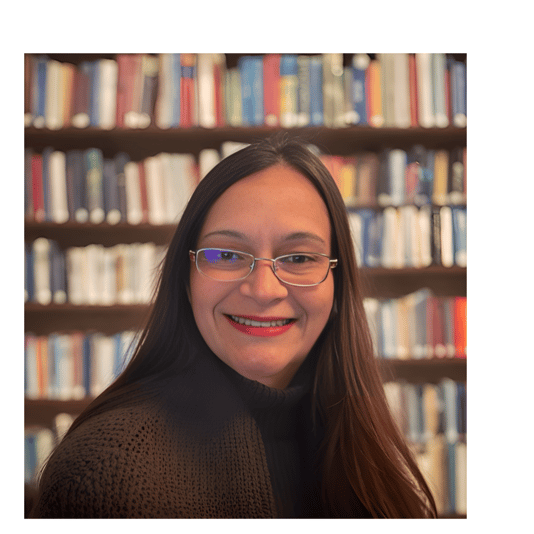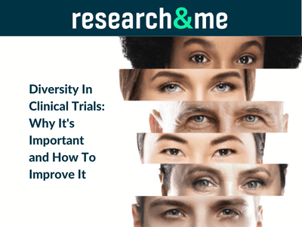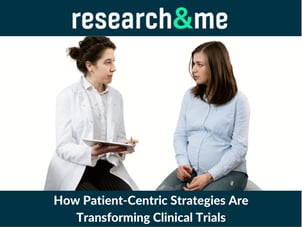January 02, 2024


Written By:
Ryan B
For her doctoral dissertation, Dr. Marielys Camacho-Reyes investigated workplace gaslighting after experiencing it personally. Now that she's finished her research and completed her doctorate, we wanted to learn more about her work.
R&M: Tell us a bit about yourself and your background
Dr. Camacho-Reyes: My name is Marielys Camacho-Reyes, and I am an Army Veteran, a retired Army Wife, and the Founder and President of the Compassionate Hearts UNITED Foundation, Inc. I hold a Ph.D. in Psychology. I was selected as one of the recipients of the 2021 Spirit of Community Award presented by the Florida Commission of the Status of Women, the 2020 Winner of The Spirit of Philanthropy Award presented by the Association of Fundraising Professionals (AFP) Greater Polk County Chapter and the GiveWell Foundation, as well as the "2019 Veteran of the Year" for the City of Haines City for my support and dedication to her community. Most recently, I was honorably recognized by Florida Congressman Darren Soto for my great impact and many contributions to my community. I am also a Certified Adult and Youth Mental Health First Aider with the National Council of Behavioral Health, a Bilingual Crisis Counselor with the Crisis Text Line, and a Certified Youth Resilience Coach. I am a member of the National Society of Leadership and Success, the International Honor Society in Psychology, as well as the National Honor Society for Veteran college students.
R&M: You investigated workplace gaslighting - what inspired you to pursue this research topic?
Dr. Camacho-Reyes: The reason I decided to investigate workplace gaslighting was basically due to a life-transforming experience I had many years ago in the workplace in I which I faced gaslighting. At that time, even when I was already a seasoned employee and an expert in my field, the gaslighting I experienced took a tool not only in my mental, emotional and physical health, but it also had a negative impact in my professional life and my self-esteem, and it wasn't until years later that I was able to regain my strength and put all the pieces together to move forward in life, not only as a person but also as a professional.
R&M: How did you approach designing your study? What was your methodology and process?
Dr. Camacho-Reyes: In crafting my study design, I diligently followed the advice from my dissertation committee and drew upon my doctoral studies at Walden University. Prior to initiating the study, I extensively researched different studies similar to the one I wanted to conduct to have a better idea of what other researchers had done before me. Through this process and a comprehensive literature review, I determined that a hermeneutic phenomenological approach was ideal for my research. This method was chosen for its ability to gather in-depth data essential to understanding how individuals navigate workplace gaslighting experiences and experience post-traumatic growth (PTG). Thet truth is that I believed this approach would effectively delve into the experiences of employees who faced workplace gaslighting, revealing how these experiences acted as catalysts for their personal growth, and I was not disappointed because, at the end, it did exactly what I was looking for.
R&M: What challenges did you encounter in the process and how did you overcome them?
Dr. Camacho-Reyes: Navigating through the research process definitely had its share of challenges! One of the major hurdles I faced was in accessing participants who were willing to share their experiences of workplace gaslighting for the study on PTG. Given the sensitive nature of the topic, understandably, some individuals were initially hesitant to open up. To tackle this, I implemented a multi-pronged approach. Firstly, I emphasized building trust and rapport with potential participants, ensuring confidentiality and highlighting the significance of their narratives in contributing to a broader understanding of the subject. Additionally, with Walden University's IRB approval, I utilized various communication channels and platforms to reach out, offering multiple avenues for participation, which eventually helped in garnering a more diverse set of perspectives.
Another challenge I faced was ensuring the accuracy and depth of the data collected. Given the subjective nature of experiences and the complexity of interpreting them within the hermeneutic phenomenological framework, maintaining rigor in data analysis was crucial. To address this, I constantly engaged in reflexive practices, regularly consulting with peers and mentors, which significantly aided in triangulating the findings and ensuring a robust analysis.
Moreover, time management was a perpetual challenge. Balancing the demands of data collection, analysis, and writing within the confines of a stringent timeline required meticulous planning and discipline. That being said, establishing a structured timeline with achievable milestones helped me in breaking down this huge workload into manageable segments, enabling me to stay on track and effectively manage time constraints.
Overall, I have to say that, while these challenges were indeed formidable, they provided invaluable lessons. By employing a mix of perseverance, adaptability, and methodical strategies, I was able to navigate these obstacles, ultimately enriching the study and contributing to a more comprehensive understanding of post-traumatic growth in the context of workplace gaslighting.
R&M: Were there any surprising or counterintuitive findings that emerged from your data?
Dr. Camacho-Reyes: Certainly! Amidst the data analysis process, there were indeed several surprising and unexpected findings that emerged, adding intriguing dimensions to the study.
One of the most striking revelations was the varied pathways individuals took in their journey toward post-traumatic growth after experiencing workplace gaslighting. Contrary to initial assumptions, not all participants followed a linear trajectory from adversity to growth. Rather, there were diverse patterns and responses among individuals. Some exhibited immediate signs of growth, demonstrating resilience and utilizing their experiences as catalysts for personal development, while others showcased delayed or non-linear progress. And, in one case in particular, the candidate is still trying to regain the control of her life after the traumatic experience.
Moreover, the nuanced nature of the catalysts for growth was quite unexpected. While the study initially hypothesized that overcoming gaslighting experiences would solely drive personal growth, it was fascinating to uncover that factors such as social support networks, personal coping mechanisms, and a reevaluation of core values played equally significant roles, if not more, in fostering post-traumatic growth. The interplay and influence of these diverse elements were pivotal in shaping the trajectory of individual growth journeys.
Additionally, the study revealed that while workplace gaslighting was undoubtedly a distressing experience, a considerable number of participants articulated a surprising sense of gratitude for the insights and personal strength gained through overcoming these challenges. This unexpected perspective on adversity as a catalyst for personal development challenged conventional notions and underscored the complexity of human responses to adversity in the workplace.
I have to say that these surprising and counterintuitive findings enriched the study, highlighting the intricate and multifaceted nature of post-traumatic growth. More importantly, they underscored the need for a more comprehensive understanding of the diverse pathways individuals navigate in transforming adverse workplace experiences into opportunities for personal development and growth.
R&M: What do you hope the impact of your research and findings will be?
Dr. Camacho-Reyes: I believe that the primary aspiration behind my research and findings on PTG stemming from workplace gaslighting is to foster meaningful change and generate a positive impact on both academic discourse and practical applications within organizational settings.
Firstly, within the academic realm, I aim to contribute nuanced insights that expand the existing knowledge base on PTG, particularly in the context of workplace gaslighting. By shedding light on the diverse pathways individuals navigate to derive growth from gaslighting experiences, I hope to stimulate further scholarly discussions, encourage more comprehensive theoretical frameworks, and potentially inspire additional empirical studies in this field.
Practically speaking, I envision the findings serving as a catalyst for change within organizational cultures. By highlighting the factors and mechanisms conducive to post-traumatic growth following workplace gaslighting, I aspire to influence organizational policies, practices, and interventions. This could involve advocating for more robust support systems for employees facing such challenges, promoting resilience-building programs, and fostering a culture that values empathy, psychological safety, and constructive conflict resolution.
Furthermore, I aim for these insights to offer guidance to practitioners, HR professionals, and organizational leaders. It is my deepest hope that the findings will provide tangible strategies and tools to help individuals and organizations navigate and recover from the aftermath of workplace gaslighting, ultimately fostering healthier and more supportive work environments.
In essence, my ultimate goal is for this research to catalyze positive change by offering a deeper understanding of how individuals can transform adverse workplace experiences into opportunities for personal growth, thereby fostering more empathetic, supportive, and resilient workplaces.
R&M: What did you personally learn or gain during your experience?
Dr. Camacho-Reyes: Undertaking this study on PTG in the context of workplace gaslighting has been an incredibly enlightening and transformative journey for me personally, encompassing valuable lessons before, during, and after its completion.
Before delving into the study, I gained a profound appreciation for the complexity of human experiences through my academic pursuits and mentorship at Walden University. The foundational knowledge I acquired equipped me with a theoretical framework to comprehend the intricacies of psychological phenomena, enabling a deeper understanding of the subject matter.
During the study's execution, I underwent a significant learning curve. Engaging with participants and analyzing their narratives exposed me to the raw, often profound, and sometimes unexpected aspects of individuals' lived experiences. This immersion allowed me to witness firsthand the resilience, diversity, and complexity of human responses to adversity. Moreover, it reinforced the importance of empathy, sensitivity, and ethical considerations when conducting research involving sensitive topics.
The post-study phase, however, provided some of the most impactful lessons. The analysis and interpretation of the collected data prompted a reflective process that extended beyond the confines of academia. I learned to appreciate the resilience of individuals in the face of adversity and gained insights into the human capacity for growth, even in the most challenging circumstances. Witnessing the transformative power of adversity in fostering personal development instilled in me a deeper sense of optimism and reinforced my belief in the human spirit's resilience. Moreover, synthesizing the research outcomes prompted a reevaluation of my perspectives on workplace dynamics and organizational culture. It emphasized the critical role of supportive environments in nurturing individual growth and well-being. This realization has influenced not just my academic endeavors but also my approach to interpersonal interactions and organizational leadership.
At the end, I strongly believe that this experience has been a catalyst for personal growth, fostering a deeper understanding of human resilience, empathy, and the transformative potential of adversity. It has instilled in me an enduring commitment to contribute meaningfully, both academically and personally, to fostering supportive and nurturing environments conducive to individual and collective growth.
Dr. Marielys Camacho-Reyes is the Founder and President of the Compassionate Hearts UNITED Foundation, Inc.
About Research & Me
Research & Me is a marketing, recruiting, and management platform for research studies, clinical trials, and corporate R&D. Offering posting, recruiting, and management solutions, Research & Me provides researchers with the tools and services needed to successfully market, recruit, and manage research. With the ability to reach participants across the United States, Research & Me offers solutions to researchers from any industry and studies of any size.

January 23, 2023
Diversity in Clinical Trials: Why It’s Important, and How to Improve It The clinicians that structure a trial or study have to take a variety of factors into consideration. What are the parameters of...
Read More
January 24, 2023
What’s in it for Me? Clinical trials are part of clinical research and at the heart of all medical advances. They help scientists better understand health and disease, and help look at new ways to...
Read More
January 25, 2023
Patient centricity is a term on everyone’s lips right now, and with good reason. The life science sector is coming around to the idea that, by putting the needs of the patient at the heart of drug...
Read More